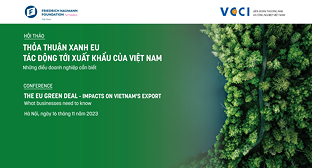When antidumping measures lead to increased market power; A case study of the European Salmon Market
12/12/2007 12:00
Author: Frank Asche, Stavanger University College and Centre for Fisheries Economics, Norwegian School of Economics and Business; Frode Steen, Department of Economics Norwegian School of Economics and Business Administration
In this paper we apply the Bresnahan-Lau (1982) model to test for market power in the European distribution of salmon. Utilising data at the import level, derived demand equations are specified rather then consumer demand. Earlier studies using this approach (Steen and Salvanes, 1999) found some evidence of market power. From 1997 a so-called salmon agreement that implied minimum prices, a growth ceiling and a feeding restriction program for Norwegian farmers was imposed. Here we apply a newer dataset to test whether the agreement resulted in an increase in the Norwegian market power. The results suggest that Norway regained market power and even increased it due to this salmon agreement. It is interesting to note that the agreement was initiated to prevent anti dumping duty of 13% that Norwegian farmers would have to pay otherwise. The increase in mark-up from imposing the agreement is found to be in the order of 14-15%, suggesting that the Norwegian farmers saved a fee of 13% and gained a markup that was even higher. This increase in market power is not welfare improving to the EU consumers and should therefore be traded off against the benefit of protecting EU salmon producers.
In this paper we apply the Bresnahan-Lau (1982) model to test for market power in the European distribution of salmon. Utilising data at the import level, derived demand equations are specified rather then consumer demand. Earlier studies using this approach (Steen and Salvanes, 1999) found some evidence of market power. From 1997 a so-called salmon agreement that implied minimum prices, a growth ceiling and a feeding restriction program for Norwegian farmers was imposed. Here we apply a newer dataset to test whether the agreement resulted in an increase in the Norwegian market power. The results suggest that Norway regained market power and even increased it due to this salmon agreement. It is interesting to note that the agreement was initiated to prevent anti dumping duty of 13% that Norwegian farmers would have to pay otherwise. The increase in mark-up from imposing the agreement is found to be in the order of 14-15%, suggesting that the Norwegian farmers saved a fee of 13% and gained a markup that was even higher. This increase in market power is not welfare improving to the EU consumers and should therefore be traded off against the benefit of protecting EU salmon producers.
Các tin khác
- The Dispute Settlement Crisis in the World Trade Organization: Causes and Cures (16/03/2018)
- Modification of trade defence rules regarding non-market economy costs and prices (23/02/2018)
- Research Paper: Options for Disciplining the Use of Trade Remedies in Clean Energy Technologies (03/08/2017)
- Addressing the rise of Trade Remedies against Environmental Goods (03/08/2017)
- Anti-dumping Retaliation - —A Common Threat to International Trade (15/11/2016)
 Home
Home
 About Us
About Us




















